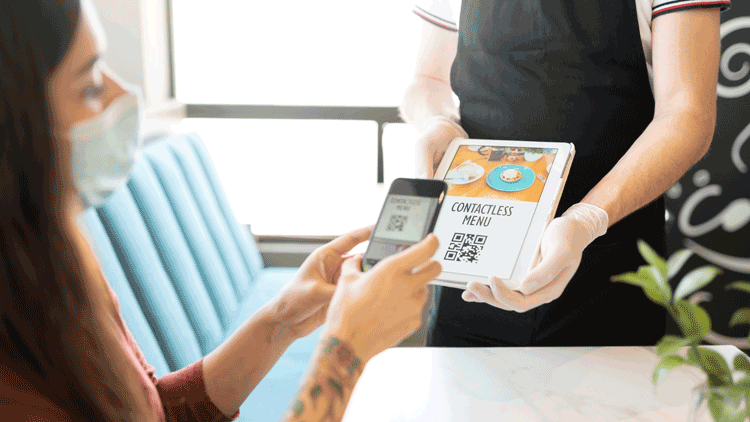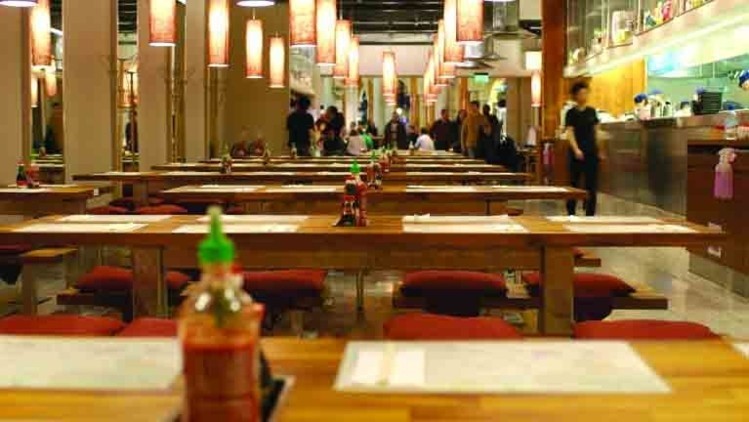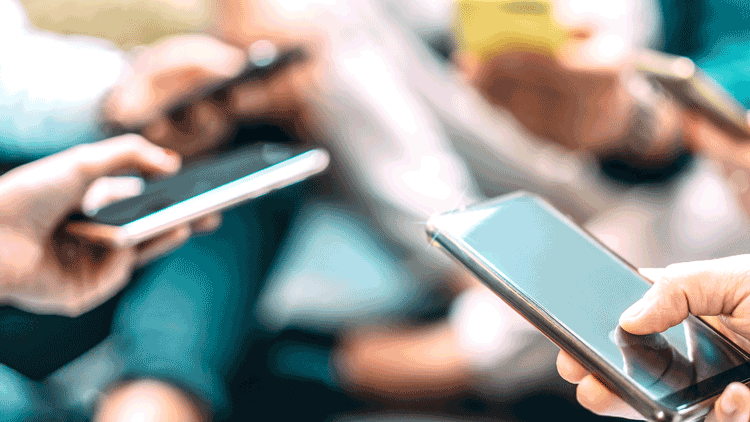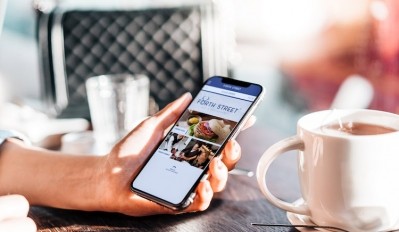Promoted feature
Digital dynamism: staying connected with diners in a contactless era

Digital order and pay systems will help hospitality businesses as they begin to reopen out of lockdown, by helping speed up table turns and allow for better collection of vital marketing data.
Speaking at a recent Hostech webinar entitled ‘How to stay connected with diners in a contactless era’, sponsored by leading hospitality technology provider Zonal, Tampopo founder David Fox said that technology such as online booking systems, order and pay at table technology and click & collect services have helped create a better customer experience at his group of pan-Asian restaurants.
“As technology develops restaurants have had to embrace that technology,” said Fox. “Booking a table 15 years ago it was 90% by phone, now the vast majority book online. An automatic reminder is sent to you online and you are asked to add that reminder to your calendar. You can also cancel the reservation at the touch of a button.
“There’s a better level of customer experience that is created by technology.”
The uptake of order and pay in restaurants, which has been expedited by the need for hospitality businesses to provide as contactless a service as possible during the pandemic, builds on the growth of customers willing to reduce interaction with staff when visiting a restaurant, particularly in the casual dining space.
“People under 35, if they can’t book online, they will not go there. They can’t be bothered talking to someone - it’s so 1997,” said Fox. “Pay at a table, click & collect, order and pay will increasingly become the cultural norm and what people want and expect.”
Overcoming restaurateur reluctance
Before the Coronavirus hit there was a reluctance among many restaurant operators to adopt customer-facing technology such as order and pay for fear that such systems would go against the ethos of hospitality and the human touch. However, many of these fears have not been realised, with customers seemingly happy to embrace the technology and the benefits that come with it.
“Businesses avoided it pre lockdown because they couldn’t be bothered, or it looked complex,” said Tim Chapman, sales director at Zonal. “What lockdown has done is freed up time to review things and they’ve had to adopt it.”
Chapman said that uptake of technology had accelerated because operators have been compelled to do so as a result of the pandemic.
“Guest order and pay came into the spotlight with Eat Out to Help Out where people needed to be able to order contactlessly.
“We’ve seen huge volumes of transactions going through and that will continue to happen with outside spaces opening up and people desperate to go out. They will want convenience, speed of service and there is an expectation from the consumer [that a business] will have an online ordering platform.”
“As a result, operators have had to review the whole tech stack. They were fearing technology but now have embraced it and have seen some really good results out of it.”
Reaping the rewards of digital
In Tampopo’s case, one main benefit has been the ability to offer better and faster customer service as well as being able to respond more quickly to sudden fluctuations in trade brought on by the weather.
“[Order and pay] has allowed us to provide a better service,” said Fox. “When we can have 60 covers outside with table service only – trying to staff that up without an order and pay app will be a nightmare. Suddenly the sun comes out and you go from five to 50 covers, having the function of order and pay allows you to retain a level of customer service.”
There are financial benefits too, with Fox reporting a higher average spend per head through mobile ordering, as well as being able to reduce costs through more efficient staff deployment.
“For a business our size one less core hour a week saves us around £2,000 a year. If I can take 10 hours out of my rota, I’ve saved £20,000 [a year], and if technology allows me to do that that’s really important.”
Fox said that the data gleaned from his order and pay system helped during the lifting of the first lockdown last summer and will continue to be of benefit as the industry comes out of lockdown once again. “It provides more information to allow me to manage margins or look at voucher codes and track if those channels are working. Altogether this gives us as a business the right building blocks to be able to grow more easily and less painfully.”
With businesses coming out of a long period of lockdown and suffering significant financial losses as a result, being as efficient as possible has never been so important, Jackson reinforced.
“You have to be brutal about your efficiencies,” he said. “If you’re not making the margins you will die, and you’ll either die a very quick death or a very slow one because you won’t have the money to invest.”
Personalisation and more targeted marketing
With contactless service currently a necessity, online order and payment systems are already proving their worth. But beyond this there are additional benefits, in particular the amount of customer data that systems can collect for the use of targeted marketing.
While some restaurants will inevitably return to a more traditional approach to service once normality has finally been restored, it is unlikely that they will want to move away from some of the benefits that digitisation has brought, according to Zonal.
“Coming out of the pandemic there will be a harmonisation of technology and the reintroduction of a more personalised service, and that’s about your venue and demographic. One thing we know is that very few people will cut off these new sales channels.”
Chapman said that while restaurants will want to make front of house service as good as possible and bring back the more personal touch, they should not underestimate the wants of certain demographics of guests.
“Customers have enjoyed the speed [of online ordering]. They are of the Amazon era, they like that level of efficiency.”
He also said that the benefits that customers are experiencing through digitisation has made them more willing to share their data and be marketed at in a more targeted fashion.
“In general, people are less suspicious of their data being used [for personalisation], that’s a bit of a turning point that’s coming.
“As time goes by and people start seeing the benefits of sharing their data, they will start to do it a lot more. That data sharing can start offering them things as they walk past the door of a restaurant – it is far more interactive.”
To watch the webinar in full click here
































